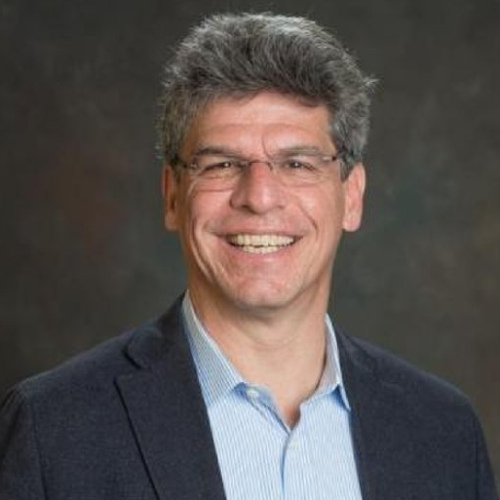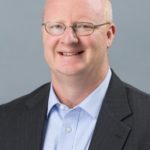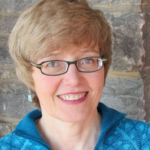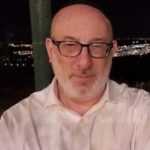Winter 2022 Tikvah Advanced Institutes
For our winter 2022 term—beginning Wednesday, January 19—we are offering a selection of 3-session, 5-session, and 8-session seminars. Below you will find brief course descriptions for every available class, and at the bottom of the page you can register for as many classes as you like, with the expectation of full participation and preparation.
By Word and Deed: Ronald Reagan’s Foreign Policy Through His Speeches
with William Inboden, Clements Center for National Security
Wednesdays, 11:00 AM–12:30 PM ET: Jan. 26, Feb. 2, Feb. 9, Feb. 16, Feb. 23.
Led by Professor William Inboden, a former senior director for strategic planning on the National Security Council, this five-week course will explore the contours of President Reagan’s foreign policy through a close reading of his most iconic speeches. Each speech will be given a close textual
reading, but also be considered in its historical context, and connected to Reagan’s policies in securing a peaceful Cold War victory and promoting freedom around the world.
William Inboden joined the University of Texas at Austin Lyndon B. Johnson School of Public Affairs faculty after many years of working as a policymaker in Washington, DC, and directing a foreign policy think tank overseas. He is the William Powers, Jr. executive director of the Clements Center for National Security and a distinguished scholar at the Strauss Center for International Security and Law. Inboden previously served as senior director for strategic planning on the National Security Council, worked on the State Department’s Policy Planning Staff and served as a congressional staff member. His think-tank experience includes the American Enterprise Institute and the London-based Legatum Institute. He is a Council on Foreign Relations life member and a contributing editor to Foreign Policy magazine. He is writing a book on the Reagan administration’s national security policies, titled The Peacemaker: The Reagan Presidency from War to Peace.
Lincoln on Slavery and Race
with Diana Schaub, Loyola University
Wednesdays, 6:30–8:30 PM ET: Feb. 2, Feb. 9, Feb. 16, Feb. 23, Mar. 2
Abraham Lincoln used to be known as the Great Emancipator. Increasingly today, that honor is denied him. The 1619 Project, for instance, as part of its reconceiving of the nation’s origins, has taken a strongly anti-Lincoln line. This course will examine the speeches and writings of Lincoln to ascertain and understand his views on two intertwined issues: slavery and race. The course will begin with the earliest evidence, his 1837 Protest in which he opposed the anti-abolition resolutions adopted by the Illinois legislature. We will study closely his great speeches of the 1850s, all of which are centered on these two issues. We will conclude with an inquiry into his presidential rhetoric and actions regarding Black colonization, emancipation, citizenship, and suffrage.
Diana Schaub, a New Atlantis contributing editor, is a professor of political science at Loyola University Maryland and a visiting scholar at the American Enterprise Institute. In 2001, she was the recipient of the Richard M. Weaver Prize for Scholarly Letters. From 2004 to 2009 she was a member of the President’s Council on Bioethics. She is the author of Erotic Liberalism: Women and Revolution in Montesquieu’s Persian Letters, along with a number of book chapters and articles in the fields of political philosophy and American political thought. She is also a co-editor (with Amy and Leon Kass) of What So Proudly We Hail: The American Soul in Story, Speech, and Song. From 1994 to 1995 Ms. Schaub was the postdoctoral fellow of the Program on Constitutional Government at Harvard University. She has taught at the University of Michigan at Dearborn and served as assistant editor of The National Interest. She earned an A.B. from Kenyon College, where she was elected to Phi Beta Kappa, and an M.A. and Ph.D. from the University of Chicago.

Homer’s Iliad: A Jewish Reading
with Jacob Howland, University of Tulsa
Tuesdays, 6:30–8:30 PM ET: Jan. 25, Feb. 1, Feb. 8, Feb. 15, Feb. 22, Mar. 1, Mar. 8, and Mar. 15
Led by Dr. Jacob Howland, a renowned political philosopher and author of Plato and the Talmud, this seminar will undertake a close reading of the Iliad, with attention to its convergence with, or divergence from, the Hebrew Bible with respect to central themes like heroism, leadership, sacrifice, fate, death, memory, kinship, and the relations of men and women, fathers and sons, gods and human beings. Homer’s Iliad was for the Greeks what the Hebrew Bible is for the Jews: an authoritative teaching and civilizational wellspring. Dostoevsky praised it as it “an epic great and full of life, so high a moment of national life and … of so great a people.” The Iliad preserves and transmits the whole way of life of the Greek-speaking tribes—including their myths, rituals, cultural codes, material and moral economies, and practices of war—while dramatizing tragic conflicts inherent in Mycenaean civilization and in human political community as such.
Jacob Howland is McFarlin Professor of Philosophy (emeritus) at the University of Tulsa. He earned a BA from Swarthmore College and a PhD from Penn State. His research focuses on ancient Greek philosophy, history, epic, and tragedy; the Hebrew Bible and the Talmud; Kierkegaard; and literary and philosophical responses to the Holocaust and Soviet totalitarianism. His most recent book is Glaucon’s Fate: History, Myth, and Character in Plato’s Republic (Paul Dry, 2018). His other books include Plato and the Talmud (Cambridge University Press, 2011) and Kierkegaard and Socrates: A Study in Philosophy and Faith (Cambridge University Press, 2006).
Blaise Pascal and Rabbi Joseph Soloveitchik: Secular Modernity and Biblical Anthropology
*REGISTRATION CLOSED*
with Benjamin Storey, American Enterprise Institute & Rabbi Mark Gottlieb, Tikvah Fund
Mondays, 12:00–2:00 PM ET: Feb. 8, Feb. 15, Feb. 22
This course will consider the thought of two of the greatest religious thinkers of modern times, Blaise Pascal and Joseph Soloveitchik, to see if the resources of Biblically-inspired philosophic anthropology can help us understand the riddle of our existence. Why is man such a puzzle to himself? Can Biblical anthropology help us understand the human paradox? What can our reason discover, and what are reason’s limits? What does it mean to say, with Pascal, that the “heart has its reasons which reason does not know”? Can this “logic of the heart” lead us to live well? Reading Pascal and Soloveitchik together will create an opportunity for a deeper understanding of the paradoxes of modern and human existence. It will also provide the framework for a serious conversation about the Jewish and Christian visions of man.
Benjamin Storey is a visiting fellow in Social, Cultural, and Constitutional Studies at the American Enterprise Institute (AEI) for the 2021–22 academic year. He is also the Jane Gage Hipp Professor of Politics and International Affairs and the director of the Tocqueville Program at Furman University. In 2016–17, Dr. Storey was a visiting fellow at the James Madison Program in American Ideals and Institutions at Princeton University. From 2010 to 2012, he was the director of a National Endowment for the Humanities “Enduring Questions” course development project. Dr. Storey is the coauthor, with his wife, Jenna Silber Storey, of “Why We Are Restless: On the Modern Quest for Contentment.” Together, the Storeys are working on a book about why the young are disaffected with liberalism, and how to overcome their political and cultural despair.
Rabbi Mark Gottlieb is Senior Director of the Tikvah Fund. Prior to joining Tikvah, Rabbi Gottlieb served as Head of School at Yeshiva University High School for Boys and Principal of the Maimonides School in Brookline, MA and has taught at The Frisch School, Ida Crown Jewish Academy, Hebrew Theological College, Loyola University in Chicago and the University of Chicago. He received his B.A. from Yeshiva College, rabbinical ordination from the Rabbi Isaac Elchanan Theological Seminary, and an M.A. in Philosophy from the University of Chicago, where his doctoral studies focused on the moral and political thought of Alasdair MacIntyre. Rabbi Gottlieb is a member of the Orthodox Forum Steering Committee and serves on the Editorial Committee of Tradition: A Journal of Orthodox Jewish Thought. He lives in Teaneck, NJ with his wife and five children.
The Moral Economy of Guilt
with Wilfred McClay, Hillsdale College
Mondays, 6:30–8:30 PM ET: Mar. 21, Mar. 28, April. 8, April. 11, and April. 25.
One could argue that the sense of guilt has become an independent force in human history, on a par with more conventional historical causes such as climate, fertility, demography, natural resources, technology, and any number of strictly material factors. Has this indeed happened, and if so, why? And what is to be done about it all? This course will wrestle with these and other issues relating to the moral and psychological power of guilt, shame, and other “sanctioning powers” in today’s world. We’ll begin with an observation that Sigmund Freud put forward in Civilization and its Discontents, where he argued that the tenacious sense of guilt was “the most important problem in the development of civilization” and that “the price we pay for our advance in civilization is a loss of happiness through the heightening of the sense of guilt.” Was he right? Through a series of readings in literature, theology, philosophy, psychology, political science, and history, we’ll attempt to answer that question, and figure out where we go from here.
Wilfred M. McClay holds the Victor Davis Hanson Chair in Classical History and Western Civilization at Hillsdale College. Before coming to Hillsdale in the fall of 2021, he was the G.T. and Libby Blankenship Chair in the History of Liberty at the University of Oklahoma, and the Director of the Center for the History of Liberty. His book, The Masterless: Self and Society in Modern America, received the 1995 Merle Curti Award of the Organization of American Historians for the best book in American intellectual history. He served for eleven years on the National Council on the Humanities, the advisory board for the National Endowment for the Humanities, and is currently is a member of the U.S. Commission on the Semiquincentennial, which has been charged with planning the celebration of the nation’s 250th birthday in 2026. He has been the recipient of fellowships from the Woodrow Wilson International Center for Scholars, the National Endowment for the Humanities, and the National Academy of Education, and served as a Fulbright Senior Lecturer in American History at the University of Rome. He is a graduate of St. John’s College (Annapolis) and received his Ph.D. in History from Johns Hopkins University.
The American Legal Battleground and the Jews
with Jerome Marcus, Tikvah Fund
Sundays, 9:00–11:00 AM ET: Jan. 23, Jan. 30, Feb. 6, Feb. 13, Feb. 20
Invitation-Only: Current Law Students or Practicing Lawyers
This seminar will focus on five current cultural battles and the way they are playing out in the legal arena, and how these disputes affect the American Jewish community. The topics will include:
- Critical race theory and education.
- Governmental responses to COVID-19 and their impact on religious communities, including facility closure and vaccine mandates.
- The interplay of religious freedom with assertions of the right to espouse nontraditional sexual identity.
- Litigation related to the financing of terrorism.
- The law of armed conflict and international litigation.
Jerome Marcus is the Dean of the Tikvah Legal Fellowship, a lawyer in private practice, and the president of The Deborah Project, a public interest law firm that represents people affected by anti-Semitism and anti-Zionism on American university campuses. He is also a Fellow at the Jerusalem-based Kohelet Policy Forum, where his work relates to the law of war and Israel’s policies on that topic. Jerome has in the past taught high school classes on American History, the history of Zionism and on the modes of thought shared by Jewish law and Anglo-American law. He is a graduate of the University of Chicago’s college, business school and law school.
Register for Your Courses Below




